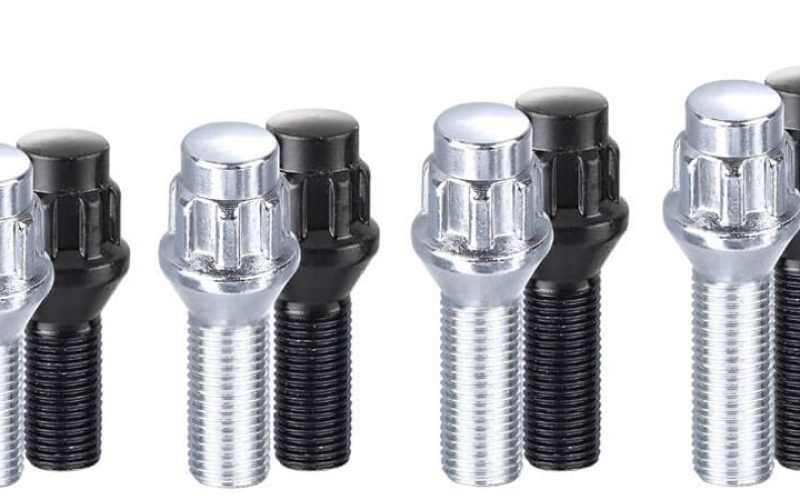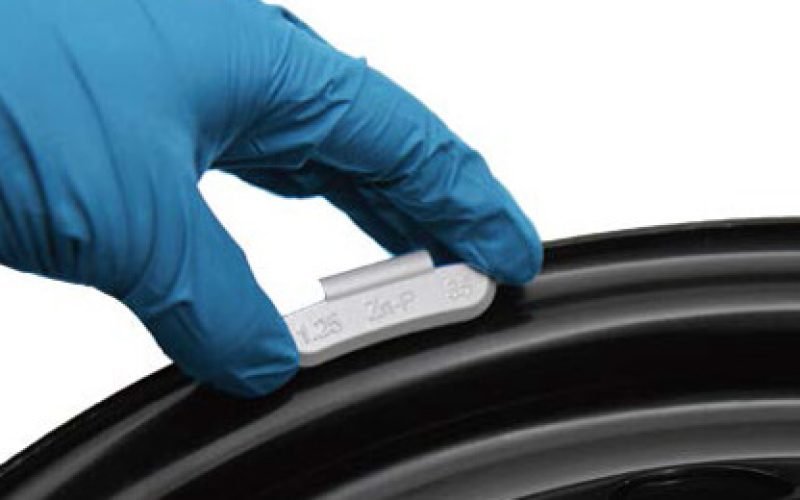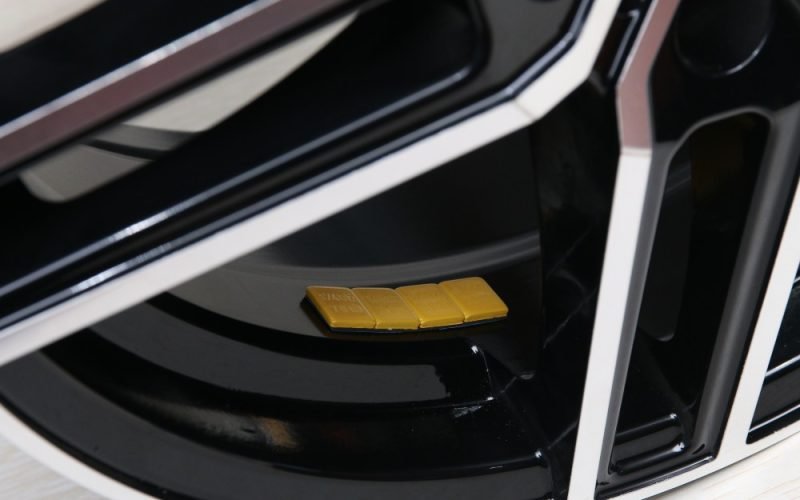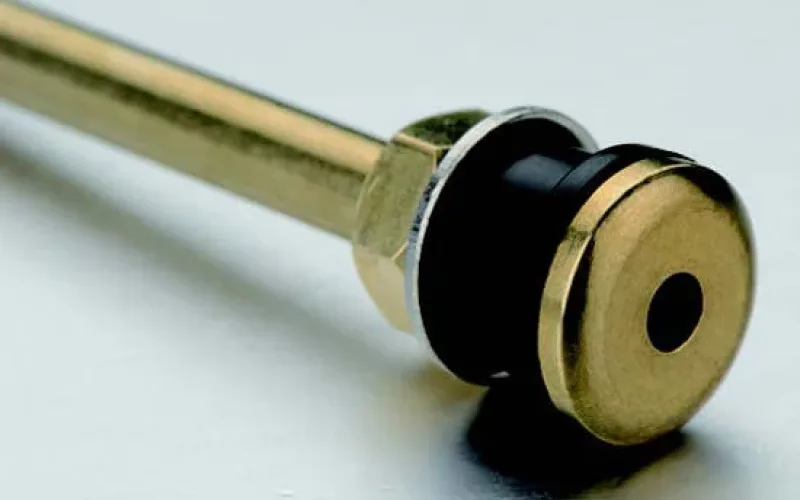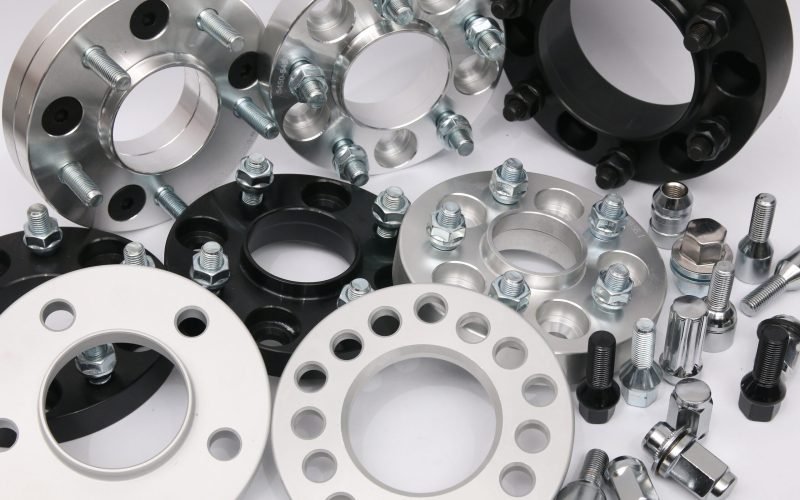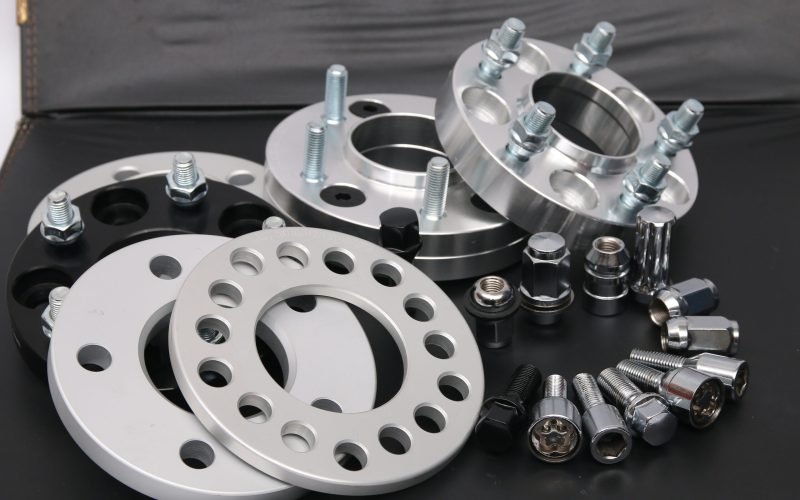

admin1
May 21, 2025
Steel vs Zinc vs Lead Car Wheel Weights Explained
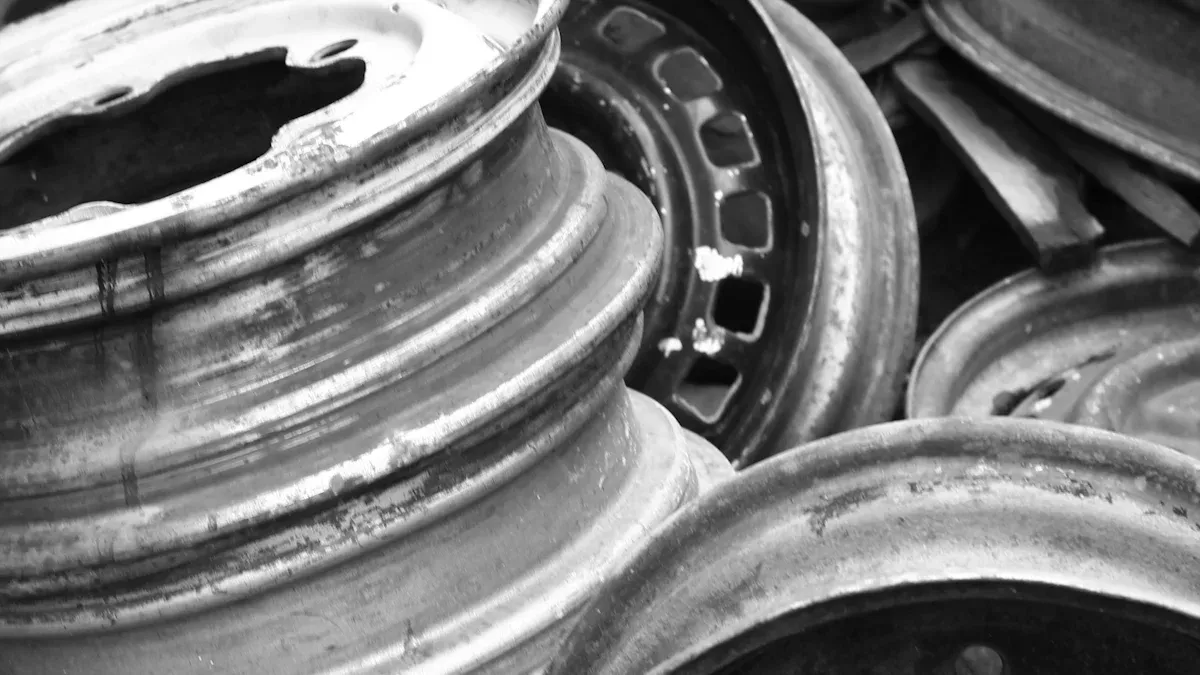
Car wheel weights keep your tires balanced, ensuring a smoother and safer driving experience. Uneven weight distribution can cause vibrations, uneven tire wear, and even damage to your vehicle’s suspension. Properly balanced wheels not only improve handling but also increase fuel efficiency by up to 4%. With over 270 million registered vehicles in the U.S., the demand for effective wheel balancing solutions is growing rapidly. Steel, zinc, and lead are the main materials used for car wheel weights, each offering unique benefits. Choosing the right material ensures your tires perform at their best while meeting your durability and environmental needs.
Understanding Car Wheel Weights
Importance of wheel weights for tire performance
Wheel weights play a vital role in keeping your tires balanced. When tires are unbalanced, you may notice vibrations while driving, especially at higher speeds. These vibrations can reduce ride quality and even affect your vehicle’s stability. Properly balanced wheels ensure smoother rotation, which improves braking and maneuverability. This is especially important when driving on rough terrains or wet roads, where stability and traction are critical.
Balanced tires also last longer. Uneven weight distribution causes irregular tire wear, which can shorten their lifespan by up to 40%. By using wheel weights, you can extend the life of your tires and reduce the need for frequent replacements. Additionally, balanced tires improve fuel efficiency by reducing energy consumption. This means you save money on gas while also reducing your vehicle’s environmental impact.
Overview of materials used in wheel weights
Wheel weights are made from three main materials: steel, zinc, and lead. Each material has unique properties that affect its performance and suitability for different applications. Steel is highly durable and eco-friendly, making it a popular choice in the industry. It resists damage from road conditions and ensures proper tire balance, which enhances fuel efficiency and vehicle stability.
Zinc is another common material. It is less dense than lead, which means zinc weights are slightly larger. However, zinc offers good corrosion resistance and is considered safer for the environment compared to lead. Lead, once widely used, is dense and malleable, making it easy to shape. However, due to its toxicity and environmental hazards, many regions have banned its use. As a result, steel and zinc have become the preferred options for modern wheel weights.
When selecting a material, consider factors like durability, environmental impact, and compatibility with your vehicle. Steel is often the best choice for its balance of performance, safety, and sustainability. This makes it the industry standard for wheel weights today.
Steel Wheel Weights
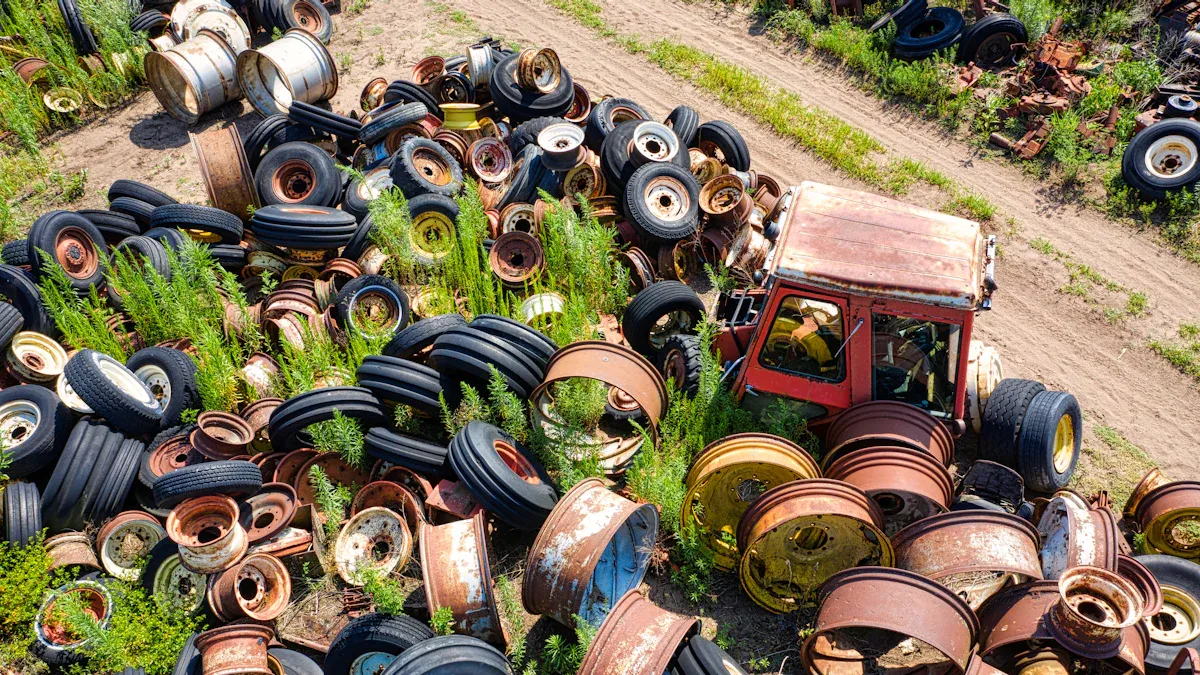
Features and benefits of steel wheel weights
Steel wheel weights are a popular choice for balancing tires due to their exceptional strength and versatility. These weights are highly resistant to bending or cracking, even under harsh driving conditions. This makes them ideal for vehicles that frequently encounter rough terrains or extreme weather. Steel weights are also cost-effective, offering a budget-friendly solution without compromising on quality.
Another key advantage is their compatibility with both clip-on wheel weights and adhesive wheel weights. This flexibility ensures easy installation, regardless of the type of wheel or tire. Steel weights are particularly well-suited for high-performance wheels, as they provide reliable balance and stability. Additionally, their durability reduces the need for frequent replacements, saving you time and money in the long run.
| Benefit | Steel Wheels | Alloy Wheels |
|---|---|---|
| Strength | More resistant to bending/cracking | Less resistant |
| Cost | Generally less expensive | More expensive |
| Repairability | Easier and cheaper to repair | More difficult and costly to repair |
| Suitability | Better for harsh conditions | Not ideal for off-road driving |
Durability and environmental impact of steel
Steel wheel weights are designed to last. They feature a protective coating that shields them from corrosion and wear, even in challenging environments. Leonard Orrick, a tire service expert, highlighted that this coating contributes to their extended lifespan compared to traditional lead weights. Boyd from Goodyear also emphasized that coated steel weights are reliable and durable, making them a trusted choice for long-term use.
From an environmental perspective, steel is a sustainable material. It is 100% recyclable, which minimizes waste and reduces the environmental footprint of wheel weight production. Unlike lead, steel does not pose significant health or ecological risks, making it a safer option for both you and the planet.
Ideal applications for steel wheel weights
Steel wheel weights are perfect for a wide range of vehicles and driving conditions. They excel in off-road and heavy-duty applications, where their strength and durability shine. High-performance wheels also benefit from steel weights, as they ensure precise balance and improved handling. Whether you drive a passenger car, SUV, or truck, steel weights provide a reliable solution for maintaining tire balance.
For those seeking easy installation, steel weights are available in both clip-on and adhesive options. This versatility allows you to choose the installation method that best suits your vehicle and wheel type. If you prioritize durability, performance, and environmental responsibility, steel wheel weights are an excellent choice.
Zinc Wheel Weights
Features and benefits of zinc wheel weights
Zinc wheel weights offer a reliable and eco-friendly solution for balancing your tires. These weights provide performance characteristics similar to traditional lead weights, making them a practical alternative. Their slightly larger size, due to zinc’s lower density, does not compromise their effectiveness in maintaining tire balance. Zinc weights are also versatile, working well with both clip-on wheel weights and adhesive wheel weights, ensuring easy installation for various vehicle types.
One of the standout benefits of zinc weights is their compliance with environmental regulations. Many regions, including Europe and North America, have restricted the use of lead due to its harmful environmental impact. Zinc weights meet these regulatory standards, making them a safer and more sustainable choice. The table below highlights the key advantages of zinc wheel weights:
| Benefit | Description |
|---|---|
| Environmentally Friendly | Zinc weights are preferred due to their eco-friendly properties, complying with regulations. |
| Comparable Performance | They offer performance characteristics similar to traditional lead weights. |
| Regulatory Compliance | Zinc weights meet regulatory mandates that restrict lead use, especially in Europe and North America. |
Corrosion resistance and environmental considerations
Zinc wheel weights excel in corrosion resistance, ensuring long-lasting performance even in challenging environments. Their electrochemical properties allow them to form protective oxide layers, which shield the weights from damage. This makes them particularly effective in environments with varying pH levels, such as acidic or saline conditions. Studies show that zinc-coated materials experience reduced degradation over time, especially in marine environments where salt exposure is high.
The environmental benefits of zinc extend beyond corrosion resistance. Unlike lead, zinc does not pose significant health risks or contribute to soil and water contamination. Its recyclability further reduces its environmental footprint, making it a responsible choice for those who prioritize sustainability. By choosing zinc weights, you contribute to a cleaner and safer environment.
Best use cases for zinc wheel weights
Zinc wheel weights are ideal for passenger vehicles, light trucks, and other everyday vehicles. Their corrosion resistance makes them suitable for regions with harsh winters or coastal areas where road salt and moisture are common. The automotive industry has successfully transitioned to zinc weights, highlighting their ease of use and health benefits. In fact, nine states, including California and New York, have banned lead wheel weights, further supporting the adoption of zinc as a safer alternative.
If you value easy installation and long-term durability, zinc weights are an excellent choice. Their compatibility with both clip-on and adhesive options ensures they work seamlessly with various tire and wheel types. Whether you drive in urban settings or challenging environments, zinc wheel weights provide a dependable and environmentally friendly solution.
Lead Wheel Weights
Features and benefits of lead wheel weights
Lead wheel weights were once the industry standard for balancing tires due to their unique properties. Lead is a dense material, which means smaller weights can achieve the same balancing effect as larger weights made from other materials. This compact size makes them easy to handle and install, especially when using clip-on wheel weights. Their malleability also allows for precise shaping, ensuring a snug fit on various tire and wheel types.
In terms of performance, lead wheel weights provide reliable and consistent results. Their density ensures they stay securely in place, even under high-speed or rough driving conditions. This makes them particularly effective for vehicles that require precise tire balancing, such as performance cars or heavy-duty trucks.
Regulatory concerns and environmental impact
Despite their benefits, lead wheel weights pose significant environmental and health risks. Lead is a toxic substance that can leach into soil and water, contaminating ecosystems and harming wildlife. Studies have shown that automobiles contribute significantly to lead pollution, with wheel weight failures being a major source. High lead concentrations in the environment often correlate with traffic volume, highlighting the widespread impact of these weights.
Regulatory actions have been taken to address these concerns. In 2009, a petition under the Toxic Substances Control Act (TSCA) urged the EPA to ban lead wheel weights due to their pervasive exposure risks, especially to children. The EPA acknowledged the petition and initiated public discussions, leading to stricter regulations. Occupational hazards also play a role, as workers involved in the manufacture and installation of lead weights face exposure through air, dust, and skin contact.
| Evidence Type | Description |
|---|---|
| Bioavailability | Information on how lead from wheel weights enters the environment. |
| Exposure Routes | Details on how humans and ecosystems are exposed to lead. |
| Occupational Hazards | Data on workplace exposure to lead during manufacturing and installation. |
| Regulatory Action | EPA’s acknowledgment of lead’s risks and subsequent regulatory measures. |
Why lead is being replaced by other materials
The shift away from lead wheel weights is driven by their environmental impact and the availability of safer alternatives. Economically viable options like zinc and steel have become the preferred choice for manufacturers. These materials offer comparable performance while eliminating the risks associated with lead. For example, zinc weights are corrosion-resistant and environmentally friendly, while steel weights are durable and recyclable.
The automotive industry has largely transitioned to lead-free products. Regulations have reduced lead content in wheel weights from over 90% to as low as 0.1%. This shift has significantly mitigated risks to human health and the environment. By choosing lead-free products, you contribute to a cleaner and safer world while ensuring your tires remain balanced and efficient.
| Evidence Description | Details |
|---|---|
| Lead Wheel Weights Impact | Automobiles are a major source of lead pollution. |
| Correlation with Traffic | High lead levels are linked to areas with heavy traffic. |
| Alternatives to Lead | Zinc and steel weights are effective and widely available. |
| Industry Shift | Manufacturers now prioritize lead-free materials. |
| Reduction in Lead Content | Regulations have drastically reduced lead in wheel weights. |
| Mitigation of Risks | Safer materials have minimized health and environmental hazards. |
Comparing Steel, Zinc, and Lead Wheel Weights
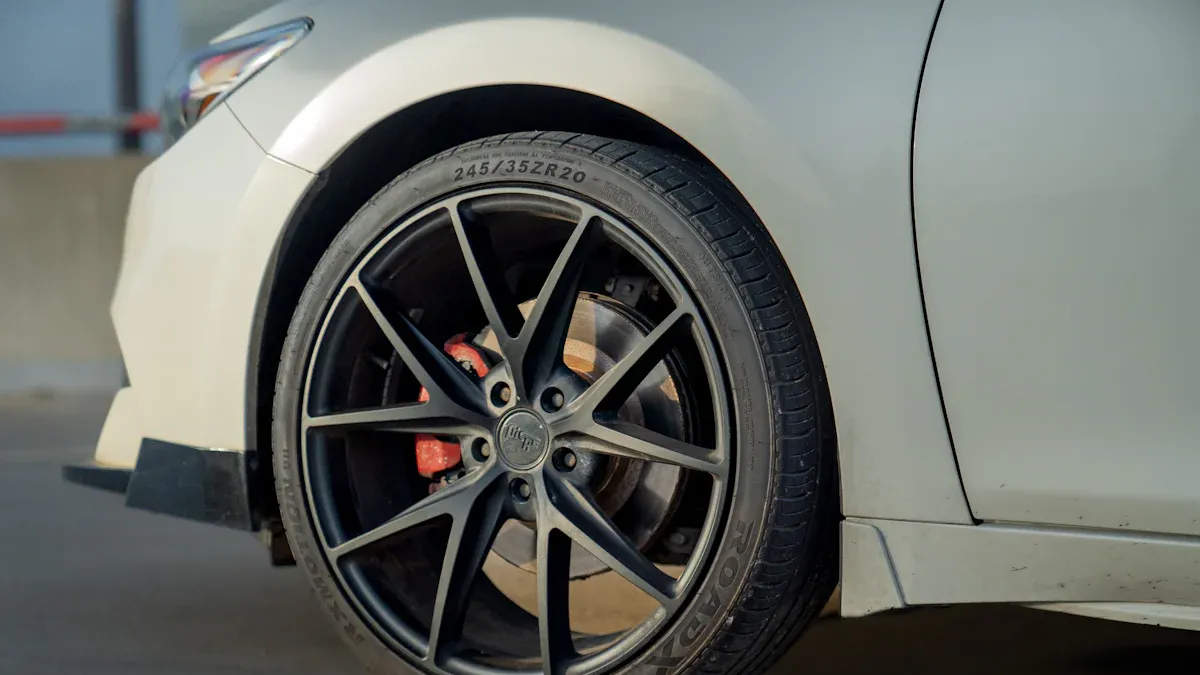
Performance and durability comparison
When comparing the performance and durability of steel, zinc, and lead wheel weights, each material offers unique advantages. Steel wheel weights stand out for their exceptional strength and resistance to wear. Treated steel weights, especially those with rust-resistant coatings, perform well in harsh conditions, making them a reliable choice for long-term use. Zinc weights, on the other hand, excel in corrosion resistance. Their ability to form protective oxide layers ensures durability in environments with high moisture or salt exposure. Lead weights, while dense and effective, face challenges due to environmental concerns that can limit their durability in certain regions.
Zinc has a lower density than steel, resulting in weights that are about 10% longer. Steel weights are strong and durable but can rust, while zinc weights are corrosion-resistant and aesthetically pleasing. Lead weights are dense, allowing for smaller sizes, but are environmentally less friendly.
In terms of technical specifications:
- Steel weights are highly durable but may rust without proper treatment.
- Zinc weights resist corrosion, making them ideal for wet or coastal areas.
- Lead weights, though compact and effective, pose environmental risks that affect their longevity.
Environmental impact of each material
The environmental impact of wheel weights varies significantly depending on the material. Steel is the most eco-friendly option. It is 100% recyclable and does not release harmful substances into the environment. This makes steel weights a sustainable choice for those who prioritize reducing their ecological footprint. Zinc weights also offer environmental benefits. They are recyclable and comply with regulations that restrict the use of toxic materials like lead. Additionally, zinc’s corrosion resistance reduces the need for frequent replacements, further minimizing waste.
Lead weights, however, have a significant negative impact on the environment. Lead is toxic and can leach into soil and water, contaminating ecosystems and posing health risks to humans and wildlife. Regulatory actions in many regions have banned or restricted the use of lead weights, encouraging the adoption of safer alternatives like steel and zinc.
- Steel: Recyclable and environmentally safe.
- Zinc: Corrosion-resistant and compliant with environmental regulations.
- Lead: Toxic and harmful to ecosystems, leading to widespread bans.
Cost and availability comparison
The cost and availability of steel, zinc, and lead wheel weights depend on market demand and regulatory factors. Steel weights are widely available and cost-effective, making them a popular choice for both manufacturers and consumers. Their durability and recyclability contribute to their cost-effectiveness, as they require fewer replacements over time. Zinc weights, while slightly more expensive than steel, offer excellent value due to their corrosion resistance and compliance with environmental standards. Lead weights, once the most affordable option, have become less available due to regulatory restrictions and environmental concerns.
| Material | Key Analysis Sections |
|---|---|
| Lead | Market Size Forecast, Basis Point Share Analysis, Absolute $ Opportunity Assessment, Market Attractiveness Analysis |
| Steel | Market Size Forecast, Basis Point Share Analysis, Absolute $ Opportunity Assessment, Market Attractiveness Analysis |
| Zinc | Market Size Forecast, Basis Point Share Analysis, Absolute $ Opportunity Assessment, Market Attractiveness Analysis |
When choosing wheel weights, consider not only the upfront cost but also the long-term value. Steel and zinc weights, with their durability and environmental benefits, often provide better overall value compared to lead weights.
Factors to Consider When Choosing Wheel Weights
Vehicle type and tire compatibility
The type of vehicle you drive plays a significant role in determining the right wheel weights. Cars, trucks, and SUVs each have unique requirements based on their size, weight, and intended use. For example, a compact sedan may need lighter weights, while a heavy-duty truck requires more robust options to handle its load. Choosing the correct weights ensures proper balance, which directly impacts vehicle safety and tire longevity.
Tire compatibility is equally important. Not all weights fit every tire or wheel design. Clip-on weights work well with steel rims, while adhesive weights are better suited for alloy wheels. If your vehicle has custom or high-performance tires, you may need specialized weights to maintain safety and stability. Always check your tire specifications and consult a professional if you’re unsure about compatibility.
Tip: Matching the right weights to your vehicle and tires not only improves safety but also enhances overall driving comfort.
Driving conditions and performance needs
Your driving environment and habits should influence your choice of wheel weights. If you frequently drive on rough roads or off-road trails, durability becomes a top priority. Steel weights, known for their strength, perform well in these conditions. On the other hand, if you live in a coastal area or a region with harsh winters, zinc weights offer excellent corrosion resistance, ensuring they last longer.
For those who prioritize performance, such as sports car enthusiasts, precise tire balance is critical. High-performance vehicles demand weights that can handle higher speeds and sharper turns without compromising safety. In these cases, selecting weights designed for performance needs ensures your vehicle remains stable and responsive.
Note: Consider how your daily driving conditions affect your vehicle’s safety and performance. The right weights can make a noticeable difference.
Budget and long-term value
While cost is an important factor, focusing solely on the price of wheel weights can lead to compromises in quality and safety. Steel weights are often the most cost-effective option, offering durability and recyclability at an affordable price. Zinc weights, though slightly more expensive, provide long-term value due to their corrosion resistance and compliance with environmental standards.
Lead weights, although less common today, may appear cheaper upfront. However, their environmental impact and potential bans in certain regions make them a less practical choice. Investing in high-quality weights not only ensures safety but also reduces the need for frequent replacements, saving you money over time.
Reminder: Balancing your budget with long-term value helps you make a smarter decision. Durable and eco-friendly weights often pay off in the long run.
Choosing environmentally friendly materials
Selecting environmentally friendly materials for wheel weights benefits both your vehicle and the planet. These materials reduce pollution, conserve resources, and align with global efforts to create a cleaner environment. By choosing sustainable options like steel or zinc, you can help minimize the harmful effects of traditional materials like lead.
Lead wheel weights, once common, pose serious environmental risks. When they fall off vehicles, they degrade and release toxic particles into the soil and waterways. The Illinois EPA has highlighted this issue, warning that lead contamination harms ecosystems and endangers human health. The federal EPA estimates that vehicles release around 2,000 tons of lead annually, further emphasizing the need for safer alternatives. By switching to lead-free materials, you can play a role in reducing this pollution.
Steel and zinc are excellent choices for eco-conscious drivers. Steel is 100% recyclable, making it a sustainable option for wheel weights. Its durability ensures fewer replacements, which reduces waste over time. Zinc, another popular material, offers similar benefits. It resists corrosion and complies with environmental regulations, making it a responsible choice for those who value eco-friendliness. Eccomelt, a leader in sustainable materials, highlights the advantages of using recycled metals like aluminum. These materials combine performance with environmental benefits, proving that sustainability does not require sacrificing quality.
When you choose environmentally friendly materials, you also support global efforts to reduce waste. Many automotive manufacturers now prioritize sustainable practices, using materials that align with stricter environmental standards. By opting for steel or zinc wheel weights, you contribute to these efforts while ensuring your vehicle remains safe and efficient.
Tip: Look for wheel weights labeled as lead-free or recyclable. These options not only protect the environment but also comply with regulations in regions where lead weights are banned.
Switching to sustainable materials is a simple yet impactful decision. It helps protect ecosystems, reduces health risks, and supports a cleaner future. Whether you drive in urban areas or rugged terrains, choosing environmentally friendly materials ensures your vehicle performs well while minimizing its environmental footprint.
When choosing wheel weights, you must consider the unique benefits and drawbacks of each material. Steel offers durability and eco-friendliness, making it a reliable option for long-term use. Zinc provides lightweight and corrosion-resistant properties, ensuring consistent performance in challenging environments. Lead, while dense and effective, poses significant environmental risks and is being phased out in many regions.
For most modern vehicles, steel or zinc wheel weights are ideal. They balance performance, sustainability, and safety. By selecting the right weights for your vehicle, you enhance tire efficiency, reduce wear, and contribute to a cleaner environment.
FAQ
What are wheel weights, and why are they important?
Wheel weights are small components attached to your wheels to balance the tires. They prevent vibrations, improve handling, and reduce uneven tire wear. Balanced tires enhance your driving experience and increase fuel efficiency. Properly balanced wheels also protect your vehicle’s suspension and ensure safer driving conditions.
How do I know if my wheels need balancing?
You might notice vibrations in the steering wheel or seat, especially at higher speeds. Uneven tire wear or a thumping noise while driving can also indicate unbalanced wheels. If you experience these issues, visit a professional to check your wheel balance.
Are steel wheel weights better than zinc or lead?
Steel wheel weights are durable, eco-friendly, and cost-effective. Zinc weights resist corrosion and comply with environmental regulations. Lead weights, though compact and effective, harm the environment and are being phased out. Steel and zinc weights are better choices for modern vehicles due to their balance of safety and performance.
Can I install wheel weights myself?
Yes, you can install adhesive wheel weights with basic tools. However, clip-on weights may require specialized equipment. For accurate installation and proper balance, it’s best to have a professional handle the process. Incorrect installation can lead to poor tire performance and safety risks.
How often should I check my wheel weights?
Check your wheel weights whenever you rotate your tires or notice signs of imbalance. Regular inspections during routine maintenance ensure your wheels stay balanced. This helps extend tire life, improve fuel efficiency, and maintain optimal vehicle performance.
